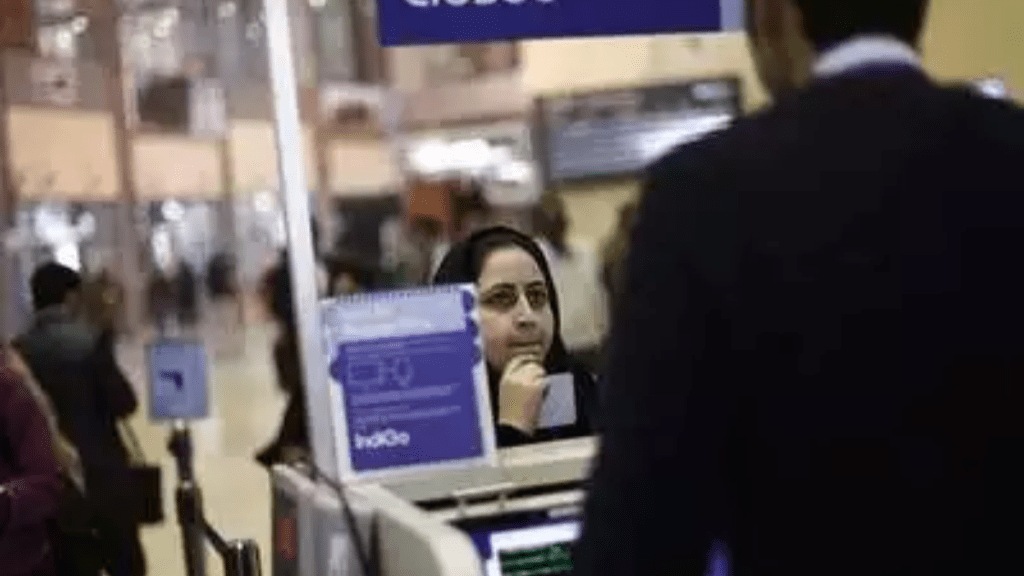By- Suresh Khadakbhavi
The travel industry is undergoing a digital revolution, with advancements like facial recognition technology streamlining key passenger processes. This shift towards paperless verification is making experiences smoother and more efficient, eliminating the need for physical documents at airport checkpoints. However, the need for secure and efficient methods of verifying Identity and Travel credentials remain paramount.
This industry, in particular, grapples with the challenge of balancing security and privacy with the demand for convenience and a seamless experience. Self Sovereign Identity (SSI) based Verifiable credentials (VCs) which use Decentralized Identifiers (DIDs) on layer of trust powered by Distributed Ledger Technology (DLT), have emerged as a promising solution, offering a way to facilitate secure and streamlined experiences while addressing pressing privacy concerns.
Balancing security and privacy: the challenge of pre-travel document sharing
Before the pandemic, managing physical documents was a pain point for many. A 2022 survey revealed 25% of respondents struggled with this. Proposed digital solutions for pre-approval streamline the process, but raise concerns about user control over personal data. This underscores the need for secure, user-friendly systems that balance efficient document checks with data privacy.
A brief insight into Verifiable Credentials (VCs)
Verifiable Credentials (VCs) are tamper-proof, cryptographically secured pieces of information that can be issued and verified electronically. Unlike traditional paper-based documents, VCs are stored and managed electronically, providing a higher level of security and convenience. These credentials can encompass a variety of information relevant to travel, such as personal identification details, vaccination records, and travel authorizations.
The core components of an SSI ecosystem involve three entities: the Issuer, the Holder, and the Verifier. The Issuer, typically an authoritative source like a government agency or healthcare provider, creates the Verifiable Credentials (VCs). The Holder, the individual to whom the credential is issued, has control over it. Finally, the Verifier, such as an airport, airline or border control agency, needs to validate the credential's authenticity. This system ensures that each Verifiable Credential originates from a trusted source (Issuer) and can be reliably verified by the Verifier.
Enhancing data security with VCs
One of the primary benefits of VCs in the travel industry lies in their ability to enhance data security. The COVID-19 pandemic highlighted the critical need for reliable and readily available health information, such as vaccination records and test results. VCs can streamline this process, significantly reducing the risk of fraud and human error associated with paper-based documentation.
Safeguarding privacy in the age of VCs
While Verifiable Credentials (VCs) offer a plethora of advantages for a seamless airport experience, the perception of the privacy of passenger data continues to remain a concern. The sensitive nature of the information stored within VCs, such as health records and travel authorizations, necessitates careful handling to prevent misuse and protect individual privacy. Here, we explore key strategies that are being implemented to address these concerns:
1. On-device storage: VCs reside on personal devices (like phones), reducing data breach risks and putting users in control of their information.
2. Share only what’s needed: VCs let you reveal specific details (e.g., Identity, Travel documents, vaccination status, etc) for specific purposes, protecting broader personal data.
3. Secure transmission: VCs scramble data (encryption) during transfer, and are encrypted using Public, Private key pairs ensuring authorized access only.
4. Regulation compliance: VC systems follow data protection rules (like GDPR) for responsible data handling.
Traveler-centric control with decentralized VCs
A promising solution is emerging through industry collaboration. This initiative focuses on developing secure and decentralized Digital Travel Credentials (DTCs) leveraging open-source verifiable data technology. These DTCs function like digital passports stored on smartphones, adhering to international standards and offering verifiable ownership to prevent forgery. This system empowers travelers with greater control over their data. They can selectively share specific information with different entities during their journey, streamlining the process while prioritizing privacy.
Enhancing airport security with facial recognition
Alongside VCs, airports are implementing new facial recognition systems to streamline the passenger journey. This technology significantly reduces processing times by eliminating the need of showing physical documents at various checkpoints. Passengers can link their travel and identity documents in advance, allowing the system to create a facial scan that serves as their ‘Single Token’ for the purposes of identity verification and Travel document validation throughout the airport checkpoints. This eliminates the need to show boarding passes or ID cards at the airport entry, during bag drop, entering security check or when boarding the aircraft.
The future of travel with VCs
As technology advances, VCs are likely to play an even greater role in the travel industry. Beyond ID, travel and health information, VCs could verify educational qualifications, professional certifications, and even legal documents. Imagine a world where seamlessly presenting your digital credentials facilitates everything from airport security to hotel check-in.
The successful implementation of VCs hinges on collaboration between governments, private entities, and technology providers. Prioritizing privacy and security while ensuring user-friendly and accessible systems, VCs have the potential to revolutionize the travel industry, making it safer, more efficient, and fostering a more connected world.
(The author is CEO, Digi Yatra Foundation.)
(Disclaimer: Views expressed are personal and do not reflect the official position or policy of Financial Express Online. Reproducing this content without permission is prohibited.)

